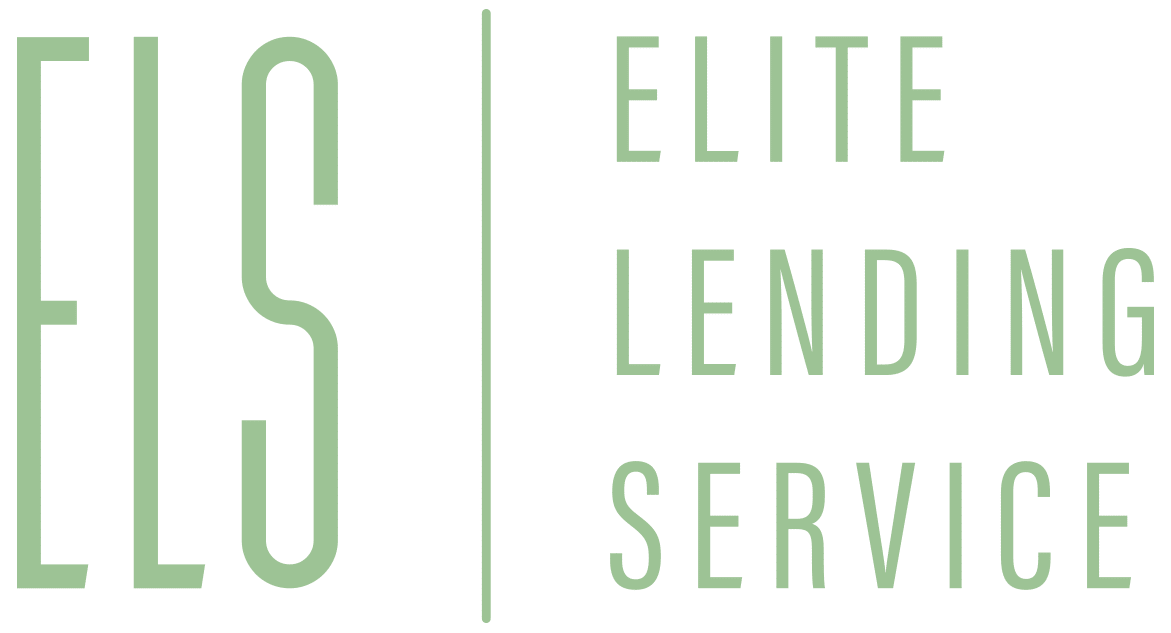Demystifying Fixed Rate Mortgage Loans: A Comprehensive Guide
Deciding on the right home loan can feel like finding your way through a maze, especially with so many options out there. It’s common to feel overwhelmed by terms like “fixed rate,” “adjustable rate,” and a slew of numbers that seem to need their own decoder ring.
Here’s an interesting fact: fixed rate mortgage loans are one of the most sought-after types for homeowners, thanks to their stability and predictability over time.
This guide is your flashlight in the dark, simplifying everything you need to know about fixed-rate mortgage loans. From what they really are, how they work, to why they might be the best (or not) choice for you—we’ve got it covered.
Our aim is simple – to equip you with all the information you need so making that big decision feels less daunting and more empowering. Ready for clarity? Keep reading!
Key Takeaways
- Fixed rate mortgage loans offer stable monthly payments because the interest rate stays the same throughout the loan. This makes budget planning easier.
- There are several types of fixed rate mortgages, including conventional, FHA, VA, USDA, and jumbo loans. Each has different benefits depending on your needs.
- For fixed rate mortgages, you might need a good credit score, steady income, and a down payment. The exact requirements can vary by loan type.
- Fixed rate mortgages can have higher initial rates than adjustable – rate mortgages but protect you from future interest rate increases.
- It’s important to gather all necessary documents when applying for a mortgage: proof of income, employment history, and any debts or assets.
Table of Contents
Understanding Fixed Rate Mortgage Loans
Fixed rate mortgage loans provide stability by offering a consistent interest rate throughout the loan term, giving borrowers predictability in their monthly payments. This type of mortgage is advantageous for those seeking long-term financial planning and protection against potential interest rate increases.
Definition and explanation
A fixed rate mortgage keeps your interest rate the same for the whole time you have the loan. This means your payments for interest and principal won’t change from start to finish.
Many home buyers like this kind of mortgage because it makes planning their budgets easier. You don’t have to worry about changing rates affecting your payments.
Choosing a fixed mortgage can make you feel secure knowing exactly what you will pay every month, with no surprises. No matter if markets go up or down, your mortgage rates stay the same.
This consistency is especially good for planning ahead and saving for other big costs that come with owning a home.
Benefits of fixed rate mortgage loans
Fixed rate mortgage loans make your monthly payments stable. You always know how much you have to pay, with no surprises. This makes it easier to budget and plan for the future confidently.
Unlike adjustable-rate mortgages where interest rates can change, fixed mortgage rates don’t budge for the entire loan period.
With fixed mortgage rates, home buyers can lock in an interest rate that doesn’t go up over time. This protection from rising interest rates is really valuable when market rates are going up.
It gives you peace of mind since your house payment won’t change, letting you focus on enjoying your new home.
These loans also make it simpler to compare offers from different lenders because the main thing – the interest rate – stays the same over time. Having this clear information means less confusion when looking at home loan rates and helps you make better choices about which lender to go with for buying your home.
Drawbacks of fixed rate mortgage loans
Fixed rate mortgage loans give you the same house mortgage rate over time, but they can be tricky. One big problem is they don’t change with the market. If interest rates go down a lot, you could get stuck paying more than what’s normal.
You might feel trapped unless you choose to refinance, which takes extra time and money.
Another issue is that fixed rates start off higher than variable-rate mortgages (ARMs). Because they promise long-term stability, you’ll likely pay more each month at first. Also, if you think about moving or refinancing soon, an ARM with its lower starting rates could save you money.
Lastly, getting a fixed-rate loan can be tougher for new buyers or those without great credit scores. Lenders see these long-lasting stable rates as riskier and often want borrowers with better financial histories.
This can make it harder for some people to buy a home.
Types of Fixed Rate Mortgage Loans
Explore the range of fixed rate mortgage options to find the perfect fit for your needs. Uncover specialized mortgage solutions tailored to suit various financial requirements.
Conventional mortgage financing
Conventional mortgage financing offers fixed or adjustable rates for home loans. With a fixed rate, the interest stays the same throughout the loan term, providing predictability and stability in house mortgage rates.
On the other hand, an adjustable rate may start lower but can fluctuate over time, affecting mortgage interest rates. Typically available for loan amounts up to $453,100, conventional mortgages require a minimum down payment and have specific credit score requirements.
For those seeking long-term stability and predictable monthly payments without potential increases in rates or payments over time, a fixed-rate conventional mortgage might be beneficial.
FHA loans
FHA loans, insured by the government, offer lower down payment requirements and allow for a lower credit score compared to other loan options. You can use gift funds for the down payment, making homeownership more accessible.
These loans also provide flexibility in terms of qualifying even if your financial situation is not perfect. With Elite Lending Service’s expertise and guidance, you can navigate through the FHA loan process with clarity and confidence, ensuring that you make an informed decision matching your needs and financial goals.
Understand that FHA loans open doors for many potential buyers who might face barriers with conventional financing. With these loans, Elite Lending Service aims to help homebuyers achieve their dream of owning a home without facing overwhelming down payment or credit score requirements typical in traditional mortgage options.
VA loans
VA loans provide a no-down-payment option for most loan amounts, benefitting veterans, active-duty service members, and eligible surviving spouses. These federally guaranteed loans offer competitive interest rates and relaxed credit score requirements, along with the advantage of not requiring private mortgage insurance (PMI).
This makes them an attractive choice for those who have served our country. VA loans allow eligible individuals to achieve homeownership without a substantial down payment barrier, offering peace of mind and favorable terms tailored specifically toward military personnel and their families.
Jumbo loans
Jumbo loans are designed for home buyers seeking to purchase high-value properties above the conventional loan limit of $453,100. These larger loans typically require a strong credit score, a lower debt-to-income ratio, and more extensive financial documentation.
Eligible candidates may need to provide proof of assets and demonstrate their ability to handle higher loan amounts. With jumbo loans, borrowers can secure financing for luxury homes or properties in pricey real estate markets where standard mortgage limits fall short.
These specialized loans offer flexibility in terms of property choices but often come with higher interest rates compared to conventional mortgages. However, Elite Lending Service offers competitive rates and expert guidance in navigating the unique requirements of jumbo loans, ensuring smooth transactions for qualified buyers looking to invest in exclusive real estate opportunities without compromise on quality or location while enjoying bespoke mortgage solutions tailored specifically for their needs.
USDA loans
Looking to buy a home in rural or suburban areas? Consider USDA loans, offering zero-down payment and lower interest rate mortgages for eligible properties. These loans provide affordable terms and clear eligibility criteria, making homeownership more achievable without a hefty down payment.
With competitive rates, they offer favorable financing and cost-effective features for prospective buyers. Understanding these benefits can help you make informed decisions about securing an affordable mortgage option that aligns with your homeownership goals.
Special considerations for self-employed borrowers
Self-employed borrowers have options for obtaining a mortgage based on their tax returns. Documentation of income is critical, and lenders will evaluate your business financials to determine your eligibility.
Some lenders offer specialized loan programs tailored to self-employed individuals, allowing them to qualify based on bank statements or asset depletion instead of traditional W-2 income verification.
It’s essential to work with an experienced mortgage professional who understands the intricacies of self-employment finances and can guide you toward the best mortgage option suited to your unique situation.
If you’re a self-employed individual seeking a mortgage, Brad at Elite Lending Service provides personalized guidance and expert advice specific to the needs of self-employed borrowers.
Eligibility and Requirements for Fixed Rate Mortgage Loans
To discover the eligibility and requirements for fixed rate mortgage loans, ensuring a smooth home loan process. Ready to learn more?
Credit score requirements
Credit score requirements for fixed-rate mortgage loans vary depending on the type of loan. For conventional mortgages, a credit score of around 620 or higher is generally recommended to secure favorable interest rates and terms.
However, FHA loans offer more flexibility with lower credit score requirements, often accepting scores as low as 500 with a 10% down payment or 580 with a 3.5% down payment. VA loans are known for their lenient credit score criteria, usually allowing borrowers with scores above 620 to qualify for competitive rates and terms.
Jumbo loans typically have stricter credit score requirements due to the larger loan amounts involved, often necessitating scores of at least 700 for favorable conditions. USDA home loans also emphasize lower credit score thresholds, making them accessible to individuals with varying credit histories as long as they meet other eligibility criteria such as income and property location qualifications.
Income and employment requirements
To get a fixed rate mortgage, you must have a steady income. Lenders look at your work history and want a secure job. Your earnings should comfortably cover the monthly payments, usually 28-31% of your gross salary.
Self-employed people need to show consistent income on tax returns for two years.
Having stable employment is crucial – most lenders prefer at least two years in the same job or industry. For self-employed borrowers, extra paperwork like profit and loss statements may be needed.
Down payment requirements
For fixed rate mortgage loans, down payment requirements vary based on the type of loan. FHA loans typically require a minimum of 3.5% down payment of the home purchase price, while VA loans may allow eligible borrowers to secure a mortgage with no down payment at all.
Conventional loans usually necessitate a down payment ranging from 3% to 20% of the property’s purchase price, contingent upon factors such as credit score and loan program specifics.
Jumbo loans often mandate a higher down payment due to their larger loan amounts.
Documentation required for application
To apply for a fixed rate mortgage loan, gather important documents such as proof of income (W-2 forms or tax returns), bank statements to show assets and down payment funds, and identification like driver’s license and social security number.
Additionally, have documentation ready regarding employment history and credit report when requested by lenders. Providing these materials promptly can streamline the application process.
For a comprehensive understanding of the necessary documentation for your fixed rate mortgage application with no application fee, contact Brad at (904) 263-0376.
Advantages of Working with Elite Lending Service
Choose the best mortgage option with expert guidance from Elite Lending Service. Ensure a smooth transaction with their solutions-focused approach.
Transparent and open communication
Elite Lending Service prioritizes transparent and open communication throughout the entire home loan process. Clients receive clear and honest information about their mortgage options, enabling them to make well-informed decisions tailored to their needs.
Transparent communication ensures that clients fully understand the terms, conditions, and requirements of their mortgage loans.
Education and guidance in choosing the best mortgage option
Get expert advice on choosing the right mortgage that meets your needs. We offer clear information about various mortgage options such as fixed rate mortgages, FHA loans, VA loans, jumbo loans, USDA loans, and tailored solutions for self-employed borrowers.
Learn about home loan interest rates and access insights into conventional mortgages with fixed or adjustable rates, FHA loans with lower down payments and credit score requirements, VA loans with no down payment for most loan amounts, jumbo loans for larger financing needs, zero-down payment USDA home loans in eligible areas, and specialized options for self-employed individuals.
Allow us to help you find the perfect fit for your homeownership journey.
Solutions-focused approach to mortgage transactions
We focus on practical solutions for your mortgage needs, ensuring a smooth transaction process. Our team addresses challenges proactively and keeps you informed every step of the way.
We tailor our approach to fit your unique situation, aiming for a hassle-free experience while providing expert guidance.
Navigating mortgage transactions, we prioritize problem-solving and efficient steps. Emphasizing effective solutions tailored to individual circumstances streamlines the process, delivering a positive experience for each client.
Common Misconceptions About Fixed Rate Mortgage Loans
Fixed rate mortgage loans are often misunderstood – clear up the misconceptions and make informed decisions.
Limited flexibility
At Elite Lending Service, fixed rate mortgage loans offer stability but limited flexibility. If interest rates decrease, you won’t benefit from lower payments unless you refinance your loan.
Also, consider this if you plan to move or sell your home soon. On the other hand, a fixed rate mortgage keeps your interest rate constant throughout the loan’s term. This can provide peace of mind and predictability for budgeting and planning long-term housing costs.
Consider carefully if the limited flexibility aligns with your future plans before committing to a fixed rate mortgage loan.
Higher interest rates
Opting for fixed rate mortgage loans may mean higher interest rates than adjustable rate mortgages. While offering stability, they could result in paying more interest over time. Your decision should align with your financial situation and the current market conditions.
Understanding the implications of higher interest rates is crucial when choosing a suitable mortgage.
Consider stable payments against potentially paying more in interest over the loan’s term to make an informed decision. Prioritize finding a mortgage that fits into your overall financial plan, considering how higher interest rates might impact your monthly budget and long-term financial goals.
Inability to refinance
Thinking about refinancing your home loan? It’s crucial to consider potential obstacles, like changes in your finances or property value. Understanding these challenges will help you make informed decisions.
Make sure you know your current financial situation and property value before pursuing a refinance. Being prepared for potential difficulties will allow you to explore other alternatives if needed.
Understanding the Fixed Rate Mortgage Loan Process
– Pre-qualification and pre-approval are crucial initial steps in the mortgage process, determining how much you can borrow based on your financial situation.
– From there, your application will move through documentation gathering, loan processing, underwriting assessment, and ultimately closing and funding.
Pre-qualification and pre-approval
Begin the home loan process by getting pre-qualified with a mortgage lender. This helps estimate how much you may be able to borrow based on your finances and creditworthiness. Then, seek pre-approval, involving submitting financial documents for review.
Pre-approval provides a conditional commitment for a specific loan amount, empowering you as a serious buyer in the housing market.
Application and documentation
To apply for a fixed-rate mortgage, gather important documents like pay stubs, W-2 forms, and bank statements. These help the lender verify your income, employment history, and financial stability.
Also provide information about any debts or liabilities. Complete a loan application in detail and sign necessary disclosures. Timely submission of all required documentation is crucial to keep the process moving smoothly.
For self-employed individuals or those with non-traditional income sources, additional documentation may be needed to validate income and financial standing. This could include tax returns from the past two years and profit-and-loss statements for businesses.
Loan processing and underwriting
Once you’ve submitted your mortgage application, it’s time for the loan processing and underwriting stage. This involves a thorough review of your financial information to ensure everything meets the necessary requirements.
Your credit history, employment verification, income documentation, and property appraisal will be closely examined during this phase.
The underwriter will assess whether you meet the lending criteria and verify that the property’s value aligns with the loan amount. Once all these aspects are scrutinized and approved, you’ll move on to the closing and funding stage.
Closing and funding
Upon securing loan approval, the final step is completing the closing and funding process. At this stage, you will sign all necessary documents and pay any remaining fees. Once everything is in order, funds are transferred to finalize the purchase of your new home.
Elite Lending Service will guide you through this phase with clarity and support.
Ensure that all required paperwork is prepared and review the terms before signing anything. After completion, the lending service provider disburses funds for your new home acquisition.
Conclusion
In conclusion, mastering fixed rate mortgage loans is essential for informed home buying decisions. The practical strategies and insights offered here will streamline your mortgage journey with efficiency.
Applying these approaches can lead to substantial improvements in securing the right loan option tailored to your needs. For further guidance or assistance, feel free to contact Brad at (904) 263-0376 today.
Fixed rate mortgage loans offer stability as the interest rate remains constant for the entire loan term. Homebuyers benefit from predictable monthly payments and protection against rising interest rates.
While fixed-rate mortgages may have higher initial rates than adjustable-rate mortgages, they provide security and peace of mind.
With Elite Lending Service, you can explore various fixed-rate mortgage options such as conventional, FHA, VA, Jumbo, USDA, and special programs for self-employed borrowers. These loan programs cater to diverse financial situations and property types.
Moreover, by working with Brad Bailey at Elite Lending Service, you’ll receive transparent communication, personalized guidance in choosing the right mortgage option tailored to your needs, and a solutions-oriented approach throughout the home loan process.
FAQs
What is a fixed rate mortgage loan?
A fixed rate mortgage loan is where your interest rate stays the same for the entire loan period, making your payments predictable.
Why choose a fixed rate mortgage over other types?
People choose fixed rate mortgages for stability in their monthly payments, protecting them from rising interest rates.
How long can I take out a fixed rate mortgage for?
You can take out a fixed rate mortgage typically for 15, 20, or 30 years, depending on what works best for you.
Can I pay off my fixed rate mortgage early?
Yes, you can usually pay off your fixed rate mortgage early; however, check if there are any prepayment penalties.
Where should I start if I’m interested in getting a fixed-rate mortgage?
Start by talking to a trusted lender who can guide you through your options and help find the best fit for you.



